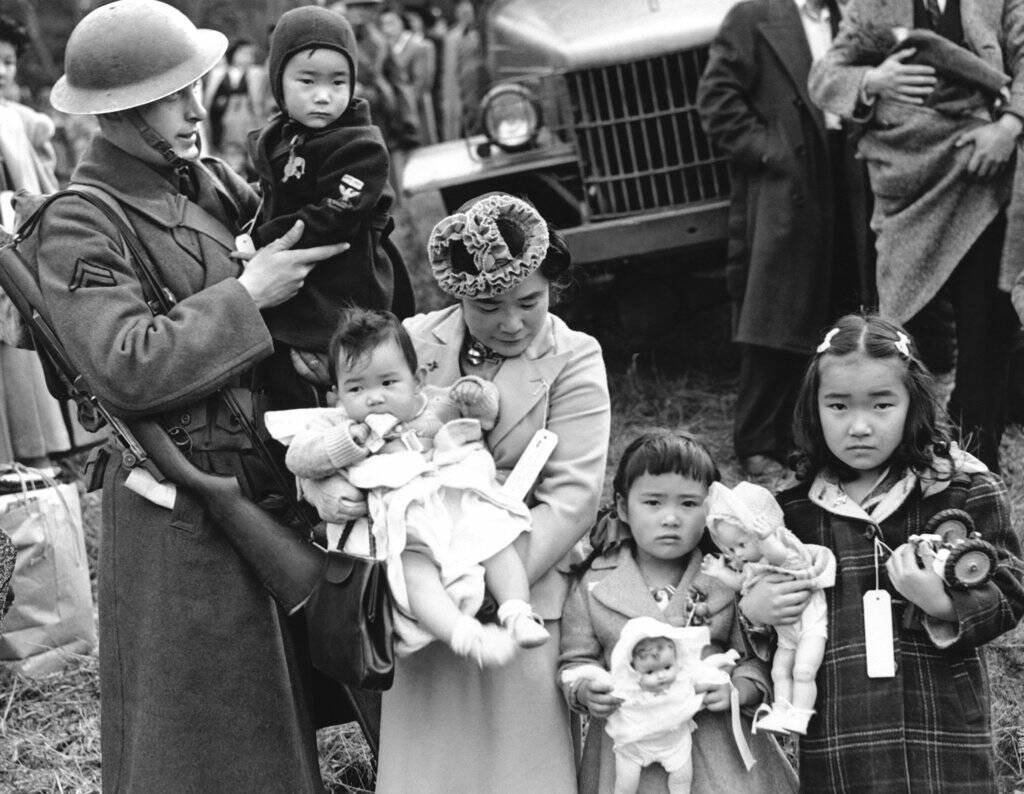This year, observers of the national “Day of Remembrance” need not recall far to see how Executive Order 9066 resonates with modern politics. Their message is clear: “Let It Not Happen Again.”
The Trump administration has twice pushed a deportation creed that targets a U.S. minority, but unlike the Muslim bans of his first administration, the president expressed intent to revive the Alien Enemies Act of 1798 in October 2024— the same law that paved the way for Japanese American incarceration during World War II.
But Bainbridge Island won’t stand for it, and hopefully neither will Congress, said local leaders of the Japanese American community.
The BI Japanese American Exclusion Memorial Association and BI Japanese American Community, along with other Japanese American coalitions throughout the nation, signed a petition in support of the “Neighbors Not Enemies” Act Jan. 22 to repeal the Alien Enemies Act for good.
“In his war on immigrants, Donald Trump has made clear that he will stop at nothing to carry out mass deportations, including invoking the archaic, little-known Alien Enemies Act of 1798,” U.S. Senator Mazie Hirono (D-HI) said in a statement. “The Neighbors Not Enemies Act would finally repeal this draconian, xenophobic law to prevent immigrants from being deported without basic due process.”
The Day of Remembrance commemorates the anniversary of when President Franklin D. Roosevelt signed the executive order on Feb. 19, 1942 that authorized the incarceration of 120,000 Japanese Americans on the West Coast for the duration of WWII.
The day allows Japanese Americans to reflect on the impact of incarceration on their communities, the economy, civic history and anti-Asian discrimination. On BI, the public is invited to a work party and reflection at the memorial Feb. 19, and BIJAC will host a ceremony March 30 honoring the day 276 Japanese Americans were forcibly removed from BI.
But on top of the order, Roosevelt also invoked the Alien Enemies Act of 1798, which detained an additional 31,000 people of Japanese, German and Italian heritage. The act initially targeted French and Irish immigrants during President John Adams’ second term, and created a legal loophole that permitted the removal of U.S. residents from an enemy nation during wartime. The act was used during the War of 1812, along with both world wars.
Ellen Sato Faust, director of BIJAEMA, and Carol Reitz, president of BIJAC, agreed that education is the primary mission of BI’s Japanese-American coalitions.
“An important way we accomplish our mission is to share the stories of what happened to American citizens in 1942 when their constitutional rights were taken away and unlawfully imprisoned,” Reitz said. “Just last year, we know that over 23,000 visited our exclusion memorial. These visitors are acutely aware of the connection between what happened in 1942 and what is happening today.”
Faust added, “We remain committed to our core mission of educating about the WWII incarceration as a demonstration of past injustices, and encourage our visitors to reflect on history’s lessons so that the same mistakes never happen again.”
BI was the first place FDR’s executive order took effect. Islanders were dismayed at the loss of their neighbors, and many maintained contact with incarcerated individuals and tended their farms while they were gone. The Bainbridge Island Review was the only newspaper to speak out against incarceration.
Clarence Moriwaki, BI city councilmember and Japanese American, said he hoped that BI would continue to show up for its neighbors threatened with deportation. “People who work here, live here, who don’t have citizenship, are part of our community, and we’re going to protect them, too, because the Constitution said, ‘No person shall be deprived of life, liberty or property without due process of law.’”



